In this blogpost, Aditi Sampat, Advocate, Nabco Enterprises Pvt Ltd and a student of the Diploma in Entrepreneurship Administration and Business Laws by NUJS, analyses the five major FDIs in the food processing industry in India made over the last two years.
FDI Policy in India
Foreign Direct Investment, commonly known as FDI, has been defined in the Dictionary of Economics as an investment in a foreign country through the acquisition of a local company or the establishment of a new operation in the foreign country. In other words, FDI refers to the capital inflows from abroad which are invested in enhancing the production capacity of the economy.
Foreign Direct Investment in India is governed by the Foreign Direct Investment Policy of the Government of India and the provisions of the Foreign Exchange Management Act, 1999. The Reserve Bank of India has also issued a notification in this regard under the Foreign Exchange Management (Transfer or issue of security by a person resident outside India) Regulations, 2000 which are amended from time to time. The Government of India through the Ministry of Commerce is the nodal agency for monitoring and reviewing the Foreign Direct Investment Policy on a continuous basis and  notifies the changes in the sectoral policy and the sectoral equity cap. The Foreign Direct Investment Policy notifications are issued through Press Notes by the Secretariat for Industrial Assistance, Department of Industrial Policy and Promotion. Foreign Investors are free to invest in India, except in a few sectors wherein the prior approval of the Reserve Bank of India or the Foreign Investment Promotion Board is mandatory. The FDI inflows in India have been growing steadily since the Year 2000 and peaked in the Year 2008, just before the global financial crisis. The year 2008 saw the net FDI inflows being 3% of the world FDI flows.
notifies the changes in the sectoral policy and the sectoral equity cap. The Foreign Direct Investment Policy notifications are issued through Press Notes by the Secretariat for Industrial Assistance, Department of Industrial Policy and Promotion. Foreign Investors are free to invest in India, except in a few sectors wherein the prior approval of the Reserve Bank of India or the Foreign Investment Promotion Board is mandatory. The FDI inflows in India have been growing steadily since the Year 2000 and peaked in the Year 2008, just before the global financial crisis. The year 2008 saw the net FDI inflows being 3% of the world FDI flows.
Post the global financial crisis; there has been a sharp downward trend and the resulting sluggish recovery of FDI due to a host of domestic factors such as policy changes, issues of governance, inadequate structural reform and tax and political uncertainties. However, India has a long way to go if it wants to achieve the pre-global financial crisis peak. The present Government has been reiterating that the country’s FDI regime is highly open and conducive to attracting Foreign Direct Investment. Until 2012, about 40% of the FDI inflows came from Mauritius, 10% from Singapore and 5% from Netherlands. However, in 2013, FDI inflows from Singapore increased to 25%, Mauritius contributed 20%, and Netherlands remained the same at 5%.
FDI and Food Processing Industry in India
The Indian food processing industry is one of the largest in the world regarding production, consumption, export and growth prospects. With the emergence of new markets and technologies, the sector has widened its scope. Production of ready-to-eat food, beverages, processed and frozen fruits and vegetables, marine and meat products, etc. have been able to meet the increased demand for food worldwide. The establishment of post-harvest infrastructure in the form of cold storage facilities, food parks, packaging centers, value-added centers and irradiation facilities have helped in the preservation of food for the increase in demand for food products across the world.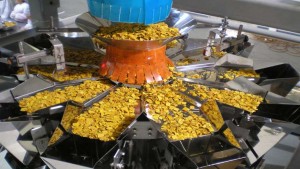
Food processing sector is indispensable for the overall development of an economy as it provides a vital linkage and synergy between the agriculture and industry. It helps to diversify and commercialize farming by enhancing the income of farmers and creating markets for export of agro foods as well as generate greater employment opportunities.
Post-1990s, liberalization of the Indian economy and world trade as well as rising consumer prosperity has opened new opportunities for the diversification of the food processing sector and also open new avenues for growth. To meet the demand, companies are offering consumers with newer high-quality food products produced by using the latest state of the art technology.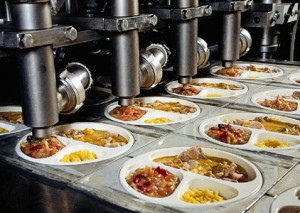
Primarily, the Indian food processing industry is export oriented. Post Liberalisation, the government has been providing incentives for Foreign Direct Investment in the Food Processing Sector to achieve economic growth. FDI works as a means of integrating developing countries into the global marketplace and increasing the capital available for investment, thus leading to increased economic growth needed to reduce poverty and raise living standards.
The inflow of FDI in food processing sector in the last three years is as follows:
- FY 2010-11 = $1,271.77 million (Rs.5,796.22 Cr)
- FY 2011-12 = $1,652.38 million (Rs.7,677.74 Cr)
- FY 2012-13 = $529.09 million (Rs.2,887.03 Cr)
The ever-increasing demands of the consumer, supply advantages and encouraging support from government policies have been instrumental in attracting foreign investors in the food processing segment of India.
Five Major FDIs in the Food Processing Industry in the Last Two Years
- India’s leading FMCG player – Ruchi Soya Industries has penned down a JV (Joint Venture) with Japan’s Toyota Tsusho Corporation and J-Oil Mills Inc. to supply processed food products to institutional clientele by 2013.
- In 2015, ITC majorly invested in the Indian food & consumer products sector.
- Mini Melts has merged with HoneyBee Amusements to control a major percentage of India’s ice-cream industry.
- Costa Coffee had made plans to include 200 more outlets and spread out their presence in India by 2015.
- Cargill intends to invest for setting up corn milling plant and for the expansion of the active edible oil plants in Karnataka.
- Twinings India, a subsidiary of Associated British Foods (UK) plans to bring malted drink by the Ovaltine brand to India by 2014. The growth and expansion plans of Twinings India are expected to increase by five times by 2016.
Food Park in India
The food processing sector has emerged as the fastest growing sub-sector in India during the last financial years. The setting up of food processing units have been promoted through Mega Food Parks containing the basic infrastructural facilities like warehouses, storage facilities, testing labs and fruit ripening chambers.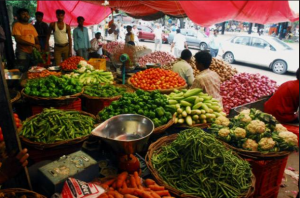
With the ever-increasing growth rate of the food processing industry, the Government has recognized the need to boost the sector. The Ministry of Food Processing Industry had announced as an incentive, the setting up of mega food parks coming up at different places in the country. The scheme under a Mega Food Park would be under an ‘open ended’ scheme of the center, and hence no ceiling on their number was fixed. To keep up with the plan, the center has cleared 30 mega food parks, 17 of which are in-principle approval.
The main features of the scheme are cluster based and demand driven approaches. The parks are aimed at providing direct linkages from the farm to processing units and finally to the consumer markets through a network of collection centers and primary processing centers. Through backward linkages, Special Purpose Vehicle (SPV) of the Mega Food Park enters into an arrangement with farmers groups in the catchment area for production of desired variety and quantity of farm produce to ensure regular supply of raw material to the Mega Food Park. The farmers, in return, are assured of the market for their farm produce and get remunerative prices thereby increasing their income considerably. The farmer would provide state-of-the-art infrastructure for food processing and sustainable supply chain solution for reducing waste and ensuring value addition, especially in perishables like fruits and vegetables.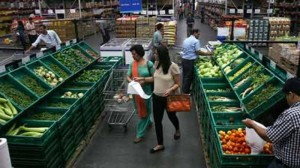
The Ministry has also constituted District Coordination Committees under the Chairmanship of concerned district collectors for coordinating various activities of these parks.
Dankuni Food Park in West Bengal has become one of the biggest foreign direct investments (FDI) in food processing sector in India which has been signed by the Chief Minister of West Bengal and Keventer group.
 Serato DJ Crack 2025Serato DJ PRO Crack
Serato DJ Crack 2025Serato DJ PRO Crack


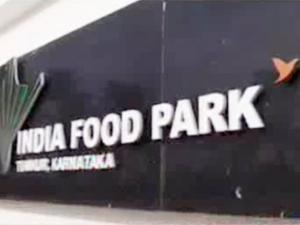







 Allow notifications
Allow notifications



[…] Further Read: 5 major FDIs in the Food processing industry. […]